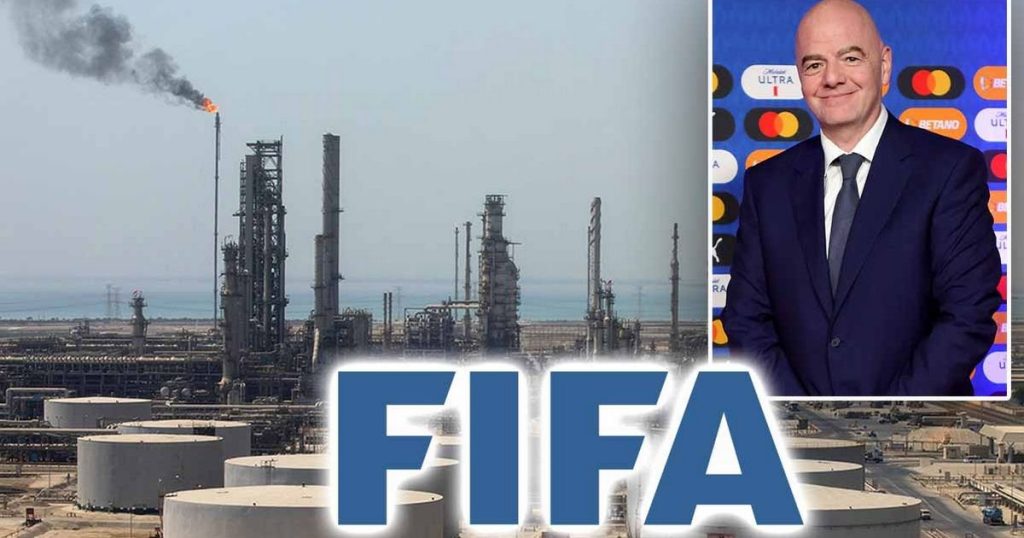FIFA has recently signed a four-year sponsorship deal with Aramco, which is the world’s largest fossil fuel company and is primarily owned by the Saudi Arabian state. This move has been criticized by environmental campaigners, who have labeled Saudi Arabia as the world’s worst sportswasher. Aramco has been identified as the dirtiest fossil fuel company in the world, having produced the most emissions since the Paris climate agreement in 2015 and lagging behind competitors in climate pledges. The alignment between FIFA and Aramco raises concerns about FIFA’s stance on climate change and endorsement of a company that is harmful to the environment.
By signing this sponsorship deal, FIFA has been accused of a “dereliction of duty” by environmental groups. Saudi Arabia has been making investments in sports, such as taking over Newcastle, creating LIV Golf, and funding high-profile players for the Saudi Pro League, with over 300 sponsorship deals across various sports. Given Aramco’s close ties to the Saudi state, FIFA’s partnership with the fossil fuel giant has raised questions about the governing body’s endorsement of the country and its environmental impact. The deal with Aramco is seen as a step in the wrong direction in terms of supporting actions against climate change.
The announcement of this sponsorship deal has sparked criticism from environmental activists, who believe that FIFA’s decision to align itself with Aramco normalizes the use of dirty fossil fuels to billions of football fans. The partnership between FIFA and Aramco, which will see the fossil fuel company featured prominently at major global football events, goes against the urgent need to reduce reliance on fossil fuels. Environmental campaigners like Fossil Free Football and the Badvertising campaign have called on FIFA to take serious climate action instead of aligning itself with companies that contribute to climate change.
Further concerns have been raised about Saudi Arabia’s involvement in sports and the impact it could have on football’s global future. The country’s investments in various sports ventures have led to accusations of promoting a future where parts of the planet may become uninhabitable due to climate change. FIFA’s decision to sign a sponsorship deal with Aramco, despite their harmful environmental impact, has been viewed as a prioritization of financial gains over the well-being of the planet. The move has sparked debate about FIFA’s responsibility in promoting sustainable practices within the sports industry.
Critics have pointed out that by accepting sponsorship from a company like Aramco, FIFA is sending a message that money is valued more than environmental concerns. Saudi Arabia has been criticized for its lack of commitment to climate change initiatives, and FIFA’s partnership with Aramco is seen as a sign of overlooking the urgent need to transition to cleaner energy sources. The alignment between FIFA and Aramco has also highlighted the growing influence of fossil fuel companies in the sports industry and raised questions about the values and ethics upheld by major sporting organizations.
In conclusion, FIFA’s sponsorship deal with Aramco has sparked controversy and criticism from environmental campaigners who are concerned about the promotion of fossil fuels and the potential impact on climate change. The partnership raises questions about FIFA’s stance on environmental issues and the values it upholds as a major governing body in the sports industry. The move also highlights Saudi Arabia’s increasing involvement in sports ventures and the implications it may have for the future of football on a global scale. The alignment between FIFA and Aramco brings into focus the ethical responsibilities of sports organizations and the need to prioritize sustainable practices in the face of climate change challenges.


